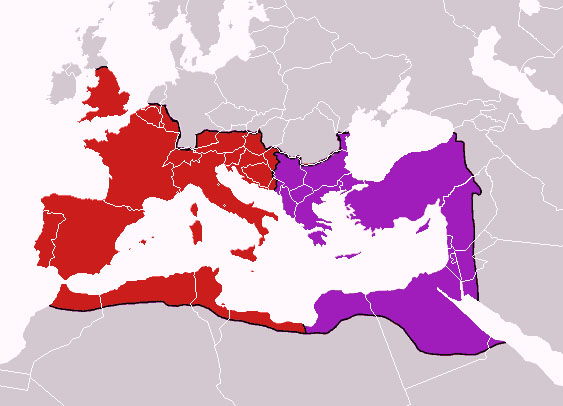The Fall of the Western Roman Empire
Ancient European History

Decline and Fall
In this podcasts Professor Peter Heather of King's College London duscusses the division of the Roman Empire and the fall of the Western Roman Empire.
The fall of the Western Roman Empire, was the loss of central political control in the Western Roman Empire, a process in which the Empire failed to enforce its rule, and its vast territory was divided into several successor polities. The Roman Empire lost the strengths that had allowed it to exercise effective control over its Western provinces; causes for this include the effectiveness and numbers of the army, the health and numbers of the Roman population, the strength of the economy, the competence of the emperors, the internal struggles for power, the religious changes of the period, and the efficiency of the civil administration. Increasing pressure from invading barbarians outside Roman culture also contributed greatly to the collapse. Climatic changes and both endemic and epidemic disease drove many of these immediate factors.
1. Why did the Roman Empire split into two?
2. Political enfranchisement across the Empire.
3. Diocletian, civil war and the emergence of Emperor Constantine.
4. Balance between East and West.
5. The doctrinal development of Christianity in the Empire under the Emperor.
6. The Fall of Rome.
7. The impact of the Byzantine conquest of Italy.
8. What did the fall of the Western Roman Empire mean for Europe?
9. Germanic movement into Roman Europe and the arrival of the Slavic peoples.
In order to access the full content of the podcasts please Login or Join the HA.

